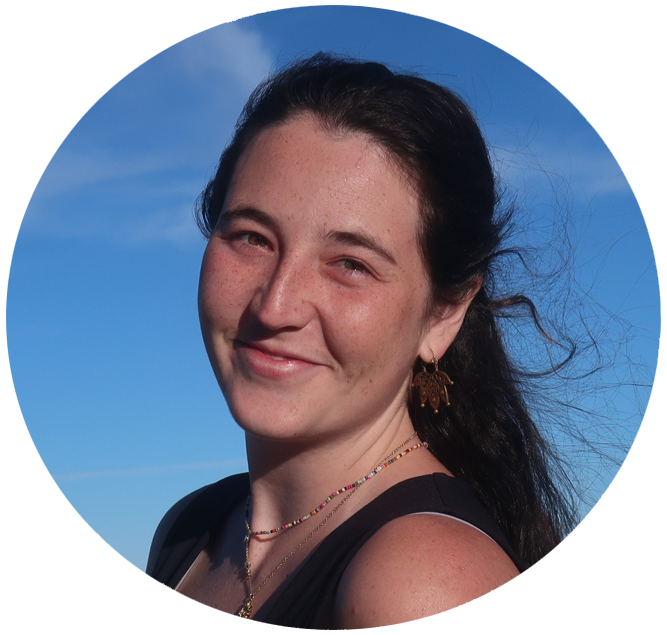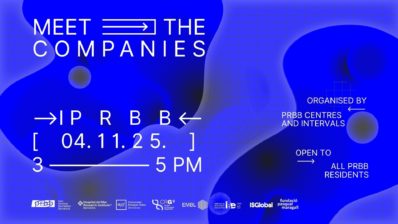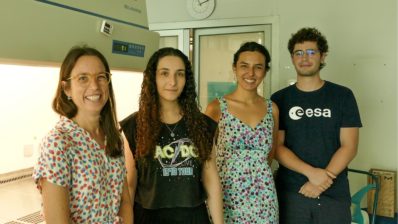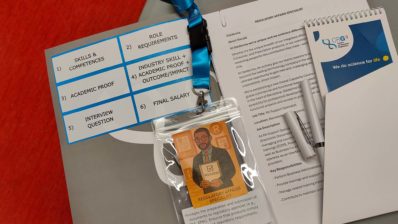Degree, master’s, PhD… this is the path that most of the scientific community of the Barcelona Biomedical Research Park (PRBB) has followed. But after the PhD there are many other options that are not to continue with conventional research until you become a principal investigator. That is why the PRBB’s Intervals program and the Park’s centers have organized the 4th edition of the “Career month“, an event to make visible a lot of scientific work to guide future professionals.
Attendees positively valued the format of the sessions, where the audience had the opportunity to ask questions and interact with the speakers, who had a wide variety of backgrounds.
Medical writer
The first talk began with a brief introduction about what medical writing is and the different types there are. The moderator, Chris George, proposal developer at the Hospital del Mar Research Institute, led the session by taking a tour of the past, present and future of this profession.
Participants included Marta Mas, executive director of medical writing at TFS Healthscience; Esther Pazo Pelegrí, editor and medical advisor at Medical Science Consulting (MSC) and Matías Rey Carrizo and Sara Rubio, both freelance writers.
Attendees were able to learn what led the speakers to work in medical writing and how their transition from the laboratory was. They also saw up close the day-to-day of this work and how it will evolve in the future, especially taking into account the impact of Artificial Intelligence.
Principal investigator
The second session, with more than forty attendees, explained how to become a principal investigator with the testimonies of Isabel Chillón, from the Institute of Molecular Genetics of Montpellier; Javier del Campo, from the Institute of Evolutionary Biology (IBE: CSIC-UPF); Sara Sdelci, from the Centre for Genomic Regulation (CRG) and Manuel Valero García, from the Hospital del Mar Research Institute. Patricia Cabezas, career advisor at the European Molecular Biology Laboratory – Barcelona (EMBL), moderated the event, and stressed that “none of the participants was a standard group leader”. The researchers explained that none of them had followed a conventional or linear path to get where they are now, and that the decisions they made had not only been focused on research but also on personal reasons. What they did agree on is that what they liked most about leading their own group is the freedom they have.
In fact, what the attendees liked the most was “listening to the different trajectories to become a principal investigator, with personal advice on te balance between life and career“.
High school or university teacher
The last session was moderated by Sara Yamaka, Education and Training Coordinator at the Barcelona Institute for Global Health (ISGlobal). It featured the interventions of Andreea Munteanu, secondary school teacher, Javier Santos and Marta Barniol Xicota, university professors and principal investigators; and Claudia Prats Balado, professor of higher level training cycles and researcher and project manager at the Agency for Health Quality and Evaluation of Catalonia (AQuAS).
All the teachers agreed that it is a very enriching profession. Attendees also learned that research can be combined with teaching outside the university, and that secondary education is a less competitive world with more flexibility when it comes to teaching than the university.
And even more profiles!
Intervals also organized two courses related to career guidance. One of them was “Understanding career opportunities that best exploit your skillset“, taught by Roni Wright. Participants were able to get an overview of a wide range of career options and learn about their own motivations, strengths and weaknesses. In the words of the attendees, “this course has been introspective and has opened my eyes to trajectories that I did not know”.
The other course was about selling yourself or a project in the time that an elevator conversation lasts: an elevator pitch. Reimund Fickert led the session, where the audience was able to practice their oral communication to obtain efficient and effective short speeches. According to one participant: “This course has allowed me to better understand the power of words. With the weight and tone of a single word, one minute can define an entire career.”
In addition, at El·lipse we have been interviewing scientific personnel with very interesting and different jobs: the management of clinical trials, the genomics technical service, the press officer or the coordination of science policy.







